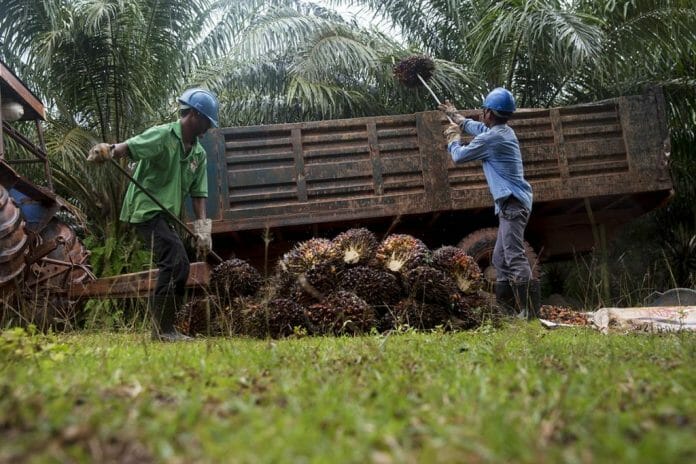FGV Holdings’ financial year 2023 future crude palm oil prices to stay within RM3,800 and RM4,000 per megatonne but it highlighted that milling profit for quarter one financial year 2023 was just RM7 million due to high input prices and poorer oil extraction rate.
Although many palm oil mills buy third party fresh fruit bunch crops to supplement internal fruit harvest to optimise the processing efficiency of a mill, FGV essentially mills fresh fruit bunch from FELDA settlers, said Kenanga Research (Kenanga) in the recent Company Update Report.
Thus, it buys 2-3x more fresh fruit bunch than its own internal harvest. Compounding this with volatile milling margin, contribution can swing significantly quarter-on-quarter. FGV indicated milling margins could improve in subsequent quarters.
“We are maintaining our slightly lower average crude palm oil price of RM3,700 per megatonne for the financial year 2023-2024 future,” said Kenanga.
FGV is now guiding for financial year 2023 future fresh fruit bunch output of 4.3 million megatonne as opposed to previous target of 4.6 million megatonne. Quarter one financial year 2023 harvest of 0.816 million megatonne was softer than expected due to heavy rainfall as well as shortfall in workers.
However, harvest should improve moving forward especially in the second half of financial year 2023 in part due to seasonal peak but also the arrival of additional guest workers from Indonesia and India, some of whom have arrived but more are due.
“However as our assumption was even lower, we are revising up our estimate to 4.3 million megatonne as per FGV’s latest guidance,” said Kenanga.
FGV reported quarter one financial year 2023 crude palm oil cost of RM2,944 per megatonne on the back of higher fertiliser, labour and fuel costs but should fall to RM2,400-2,500 per megatonne on the back of lower fertiliser cost as FGV recently locked in its full-year’s requirements for financial year 2023 and estimated that its fertiliser cost of RM2,400 per megatonne in quarter one financial year 2023 should fall to RM1,700-1,800 by second half financial year 2023.
Labour costs have risen as minimum wage jumped 36% to RM1,500 from 1 May 2022 onwards but also due to the recruitment and training of new workers.
Nevertheless, higher fresh fruit bunch production in the second half of the financial year 2023 (54%-58% of full-year’s crop) should help temper rising unit costs somewhat.
Upgrading financial year 2023-2024 future core net profit by 8% and 7%, respectively, largely on higher fresh fruit bunch output but also slightly (2%) lower production cost.
With regards to its parent’s (FELDA) mandatory takeover offer (MO) due to low public shareholder spread falling under 25%, FGV separately announced to Bursa that an Islamic preferred share proposal should be ready towards the end of June 2023.
Kenanga maintains MARKET PERFORM and trading price of RM1.40 which is based on a combination of 1.1x financial year 2024 future net tangible asset and a 20% discount on the uncertainty over the outcome of FGV’s listing status due to failure to meet the 25% minimum public shareholding spread rule.
FELDA’s MO price of RM1.30 in Jan 2021 is also close to 1.1x financial year 2020 net tangible asset. Risks identified by Kenanga include weather impact on edible oil supply, unfavourable commodity prices fluctuations, and cost inflation.









